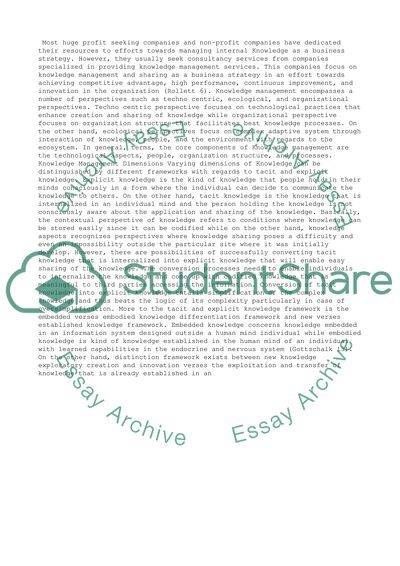Cite this document
(“Knowledge management Essay Example | Topics and Well Written Essays - 1000 words”, n.d.)
Retrieved from https://studentshare.org/management/1394032-knowledge-management
Retrieved from https://studentshare.org/management/1394032-knowledge-management
(Knowledge Management Essay Example | Topics and Well Written Essays - 1000 Words)
https://studentshare.org/management/1394032-knowledge-management.
https://studentshare.org/management/1394032-knowledge-management.
“Knowledge Management Essay Example | Topics and Well Written Essays - 1000 Words”, n.d. https://studentshare.org/management/1394032-knowledge-management.


